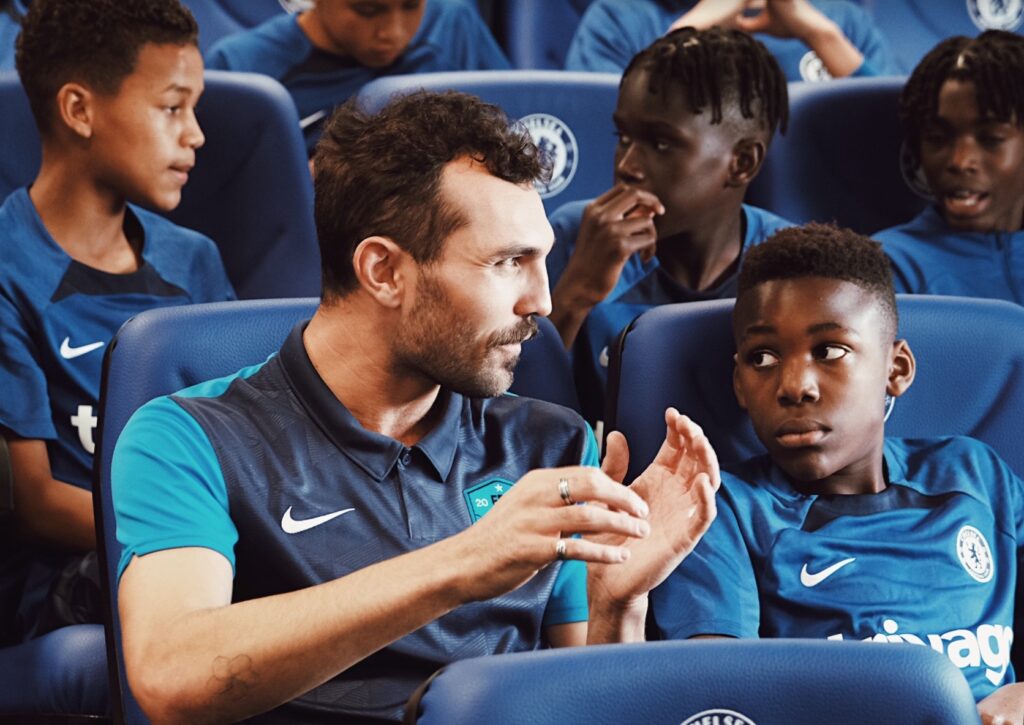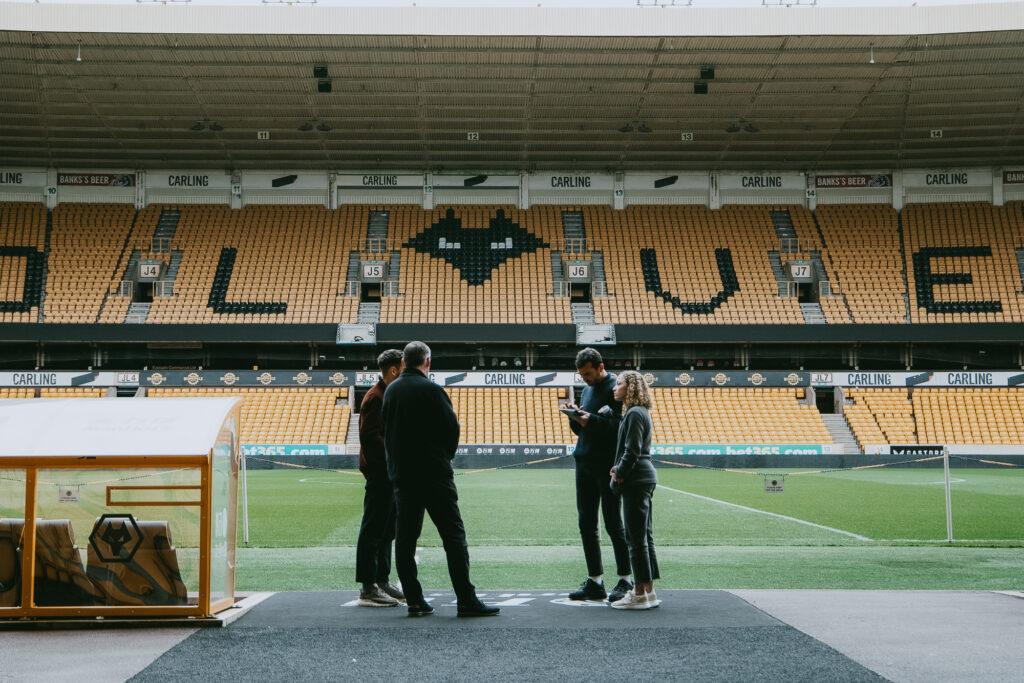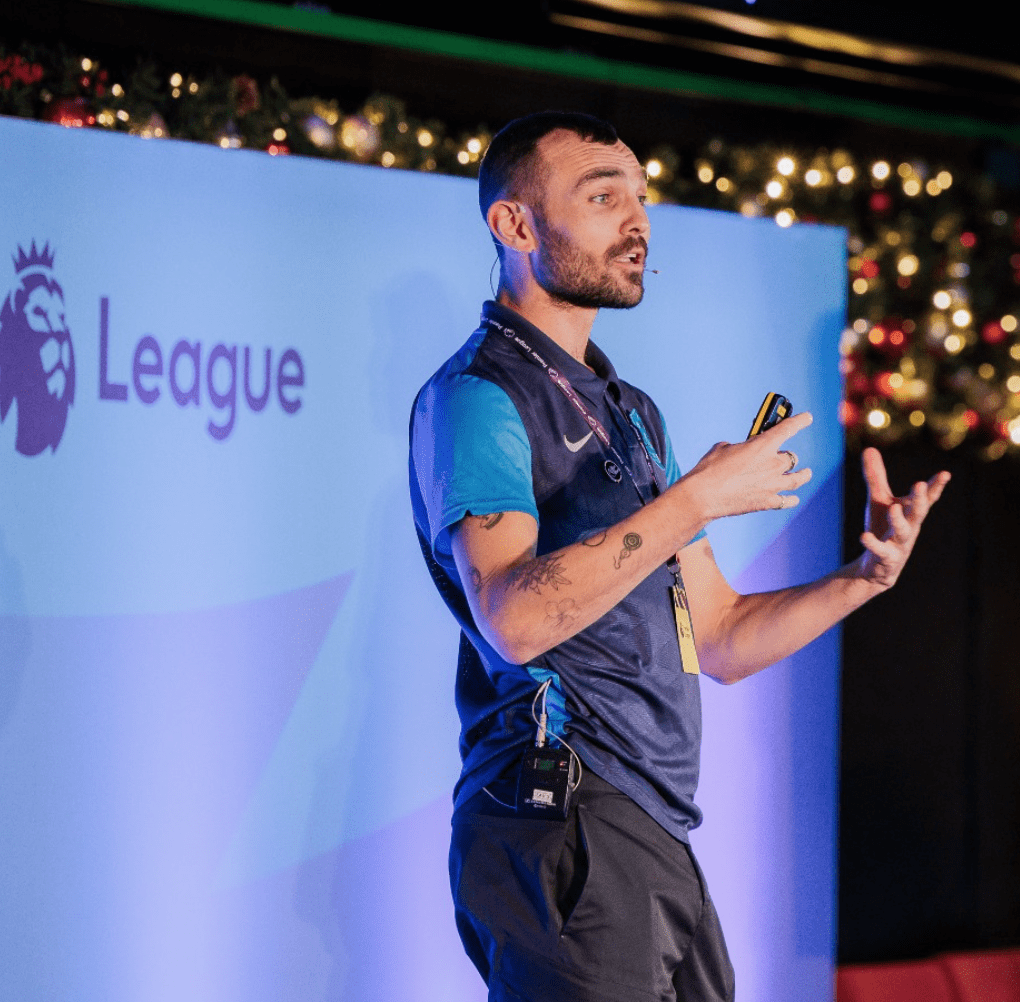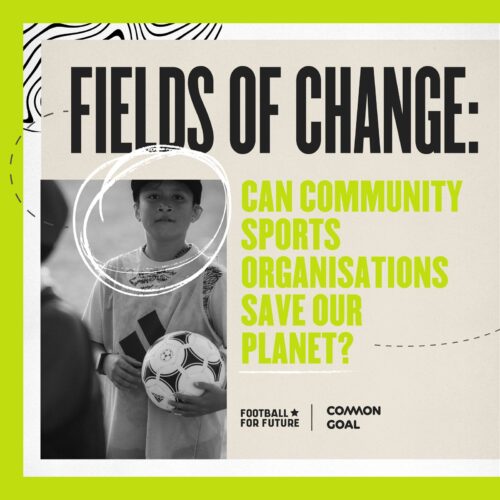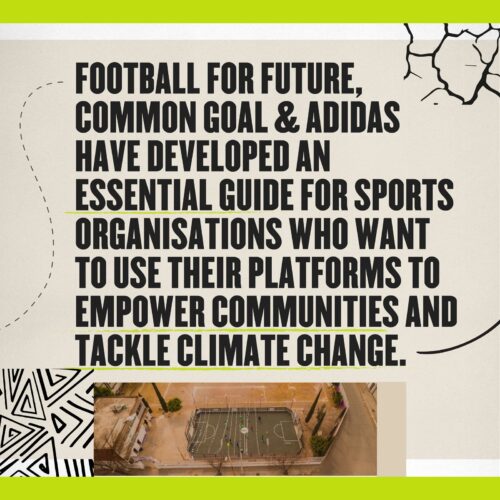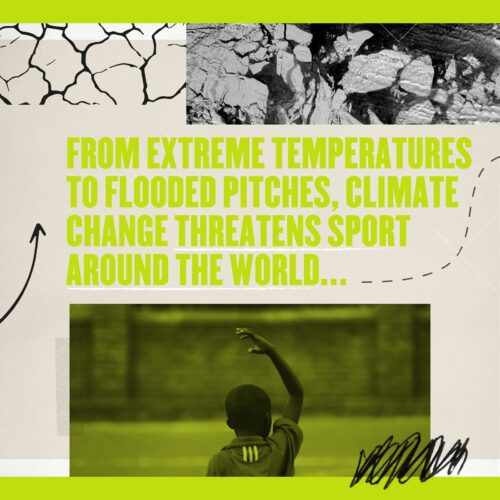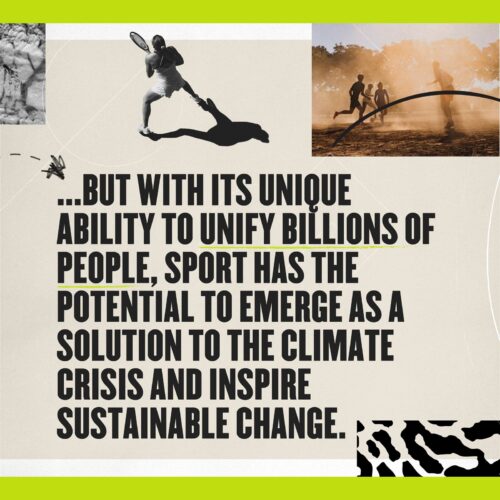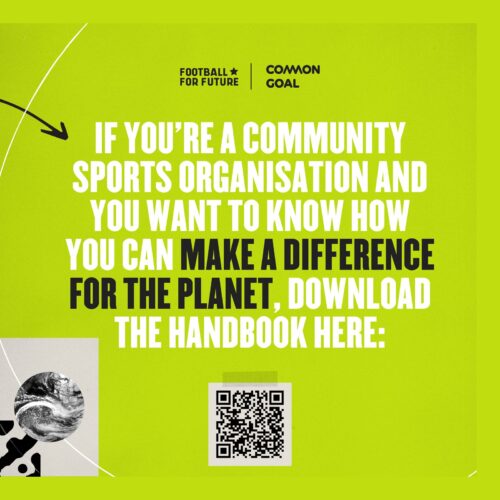In the ever-evolving world of football for good, few names resonate as powerfully as Marisa Schlenker’s. A former professional footballer turned global changemaker, Marisa’s journey has transcended the pitch, weaving through some of the most impactful organizations in the sport-for-development arena. From coaching at the Homeless World Cup to her leadership roles with Girl Power Germany, Discover Football, and now as a program manager at the adidas Foundation, Marisa has become a mainstay in this field—an emblem of dedication , expertise and purpose.
Her career isn’t just defined by titles or affiliations but by the profound impact she’s had on communities worldwide. Whether supporting grassroots initiatives or mentoring young leaders in the IOC Young Leaders Program, Marisa’s work reflects a deep belief in football’s potential to break barriers and foster meaningful social change.
In this interview, we dive into Marisa’s journey—her reflections on the power of the game, the projects that have left lasting marks on her, and her insights on where the sport-for-good movement is headed next.
Bonito: Marisa, your quickly becoming a legend in the sport for good realm! thanks so much for joining us on Bonito.
Marisa: Thanks! Its such a cool platform- awesome to join.
Bonito: Tell us about how your passion for football began and how you were captivated to explore the ways the game could bring about positive changes for society?
Marisa: I have been involved in football for many years and my love and passion for the game continues to develop as I take on different roles and responsibilities on and off the pitch. From a player’s perspective, when I think about the football matches and training sessions I’ve participated in, whether it’s at a pick-up with friends or training as part of a development sports workshop through to matches at amateur and professional level, I feel incredibly privileged to have had the opportunity to play football in so many different countries and with so many communities and teammates. If I have to name one moment in my football journey where I realized the ‘power’ of the game, I would have to describe my experience at the Homeless World Cup as an assistant coach of the Paraguayan women’s team. Being surrounded by players and coaches from all over the world with such diverse backgrounds and stories was eye-opening. It was one of the first times I realised that it wasn’t just about the results or the outcome of the tournament, it was about more. It was about the process and the journey the teams and organizations had to go through to get there in the first place, and it was about the moments on and off the small pitches that would contribute to further developments on an individual and community level.
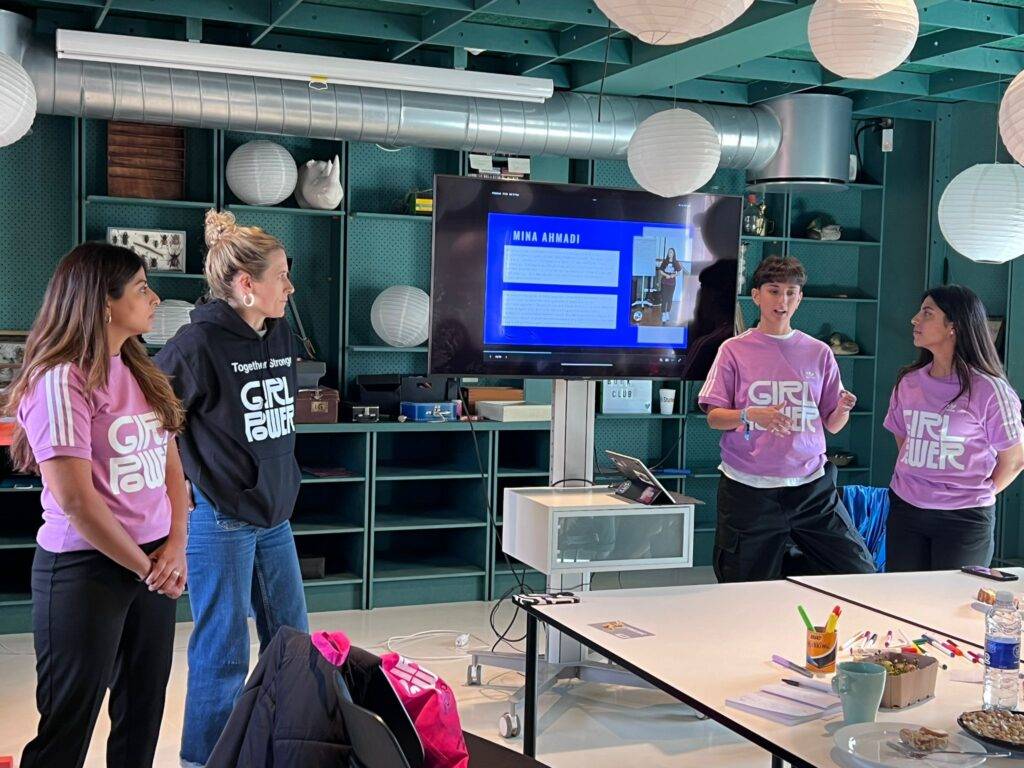
Photo: Girl Power
Bonito: It feels that so many people involved with the Homeless World Cup come away with that powerful sentiment. Why do you think football evokes such powerful emotions with such a broad range of people all over the world?
Marisa: Football is played in so many countries and on so many different surfaces around the world. It is a team sport in which every individual has a role to play. It’s a game with many decisions, opportunities and strategies. It’s also about a larger community, not just the players and coaching staff or volunteers, but also the fans, from the players’ family members at the local level to the supporters and fan groups. As football is still seen as the domain of boys and men in some parts of the world, it can also become a place of resistance and change for those who also want and deserve the chance and opportunities to play. Because in theory it does not take too many resources to set up a training or a game, it is seen as a game endowed with power, but this is not always the reality. At a grassroots level, where young people and adults either come into contact with play for the first time or enjoy it as such, play can bring communities together and, when played and practiced in a safe and intentional way, can also be a platform or gateway for further social and community development.
Bonito: Tell us about some of the projects you are currently working on or recently have worked on in the football for good arena?
Marisa: I am part of the volunteer team that supports the development of Girl Power Germany. We have had several opportunities to build a network in Germany through a Leadership Academy, various social leadership skills workshops and weekly girls’ soccer development programs. As a part of the larger Girl Power network, we have worked closely with the team in Denmark to build the foundation and structure of our team and programs. However, there are many actions that depend on our local context and collaboration.
Recently I also concluded a year of training as part of the Steilpass program.
The team behind the project is phenomenal and the partnership and collaboration between the three Bundesliga teams brought a unique dynamic to the programme. As participants, we were taken on a year-long journey where we learned about the football industry, jobs, roles and responsibilities within the sector and much more. The theoretical component was reinforced by a practical project that was left to the discretion and creativity of the individual participant. The project had to take place in a football club or organisation, so there were certain requirements. A key element of the programme was the support of a mentor. I was lucky enough to learn from a manager at VfL Wolfsburg.

Photo: Discover Football
Bonito: Where do you see the football/sport for social good field heading in the next years? Which thematic areas will be most important to deal with and what are the big challenges awaiting sport for good practitioners?
Marisa: At the moment, it is difficult to say where the non-profit football sector is heading as it is heavily influenced by changes in broader development agendas, funding and approaches as well as movements and shifts in the football sector. In the football sector, it is of course also important to pay attention to what is happening at a professional and international level, as there are impulses, trends and movements that ultimately impact the non-profit football sector. Personally, I see climate change and environmental sustainability becoming even more important to all levels of football and, as is already becoming apparent, will be a force that impacts football at all levels and all over the world. The way in which football clubs, organisations and non-profits are able to adapt, be resilient and continue to deal with the effects of climate change will be of great importance to the protection of football.
I also see that the investment, professionalization and promotion of women’s football will continue to be a force that supports the football for good sector as both are working tirelessly to address gender inequalities and injustices. At both levels of football, the organizations or teams and institutions are committed to removing the barriers and challenges women and girls face in accessing sport and providing them with safe, equitable and quality experiences. For this to be the case, there needs to be a greater focus on creating safe and athlete and participant-centered programs that require safeguarding policies, but also frameworks, mechanisms and training for all stakeholders, including coaches, volunteers, athletes and participants themselves. Sport cannot be positioned as a development tool if it is not delivered in a safe, consistent and user-friendly way.

Photo: Girl Power
Bonito: Can you tell us about a moment in your football (or sport) for social good journey that touched your heart profoundly?
Marisa: From 2021 to 2024, I had the opportunity to work with a group of young social sports entrepreneurs selected as part of the IOC Young Leaders Program to develop their social sports enterprises or social organizations over a four-year period. Together with many experts and an incredible IOC team that funded and managed the program, I was able to support the young leaders in turning their ideas and concepts into organizations and businesses. They tested out their ideas, learned from the process, pivoted in many directions and it was inspiring and educational for me to be part of the supporting team. On their journey, they found out how to develop business models and sustainability plans and lead as inclusive leaders.

Bonito: Is there one colleague at your organization or who you have collaborated with who maybe doesn’t always get the spotlight that you would like to shine today and why?
Marisa: I would love to shine more spotlights on so many colleagues or other professionals I admire in this field. I will name a few and do not know if they don’t get enough attention, but I just enjoy seeing what they are doing right now and on their career path, learning from them and collaborating with them whenever possible. These include: Anika Leslie-Walker, Jackie Bachteler, Aya Noguchi and Dr. Lombe Mwambwa.
Bonito: What tremendous experience you have Marisa, so great to have you join us and I really hope we can find some good projects to do together in the future!
Marisa: Thanks so much! its great to have this unique community live!
————————————————————————————————————————————————
BIO
Name: Marisa Schlenker
Organization (s): employed at adidas Foundation gGmBH and for volunteer work, I support Discover Football and Girl Power Germany
Role: program manager, volunteer, facilitator and coach, safeguarding in sport officer
Favorite Football (or sport) for good organization apart from your own: I do not have a favorite, but feel inspired by so many organizations, from those working at the community level to create more opportunities and access to football, to those initiated through partnerships at the professional level. From my experience of working, volunteering, supporting and researching these organizations, I know that football can only lead to different social, economic or environmental outcomes if it takes place in a safe, inclusive and sustainable environment and the choice of partners is crucial.
Favorite Football Club: Chicago Red Stars, SC Freiburg
Dream sport for good organization that you would love to collaborate with on a project: As I already work with and support many organizations in the field of sport for development, my dream would be to see greater collaboration between existing sport for change movements and networks to achieve greater impact and develop coherent policies. The use of research, best practice and lessons learned from existing sport for development partnerships and the mechanisms within their structures, processes to share resources and conditions will undoubtedly benefit collaborations addressing complex development issues. I would also like to see more examples of cross-sectoral collaborations where those with knowledge of the specific development challenges are already involved in the program planning stages.

Photo: Yunus Sports Hub






















